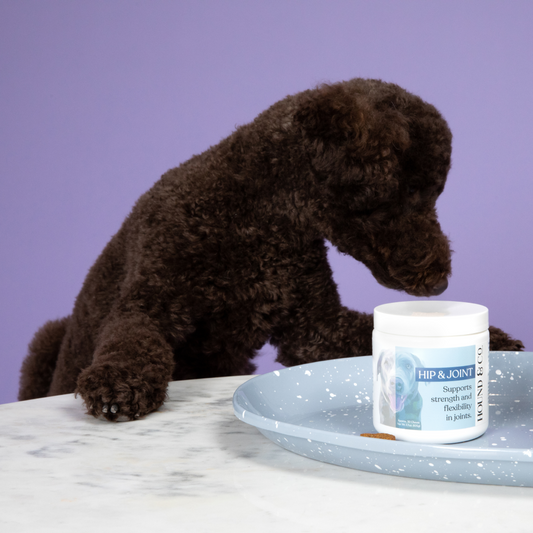Can Dogs Really Smell Cancer? What Science Says

Vet Reviewed by Dr. Jacob Klos, DVM

Your dog has up to 300 million scent receptors. You? About 6 million.
That staggering difference isn't just a fun fact—it’s a game-changer. Research now shows that dogs aren’t just good at sniffing out treats or your neighbor’s trash. They may be capable of detecting deadly diseases like cancer with extraordinary accuracy.
So... Can Dogs Really Smell Cancer?
Yes. And science backs it up. In fact, a groundbreaking study published in the Journal of the American Osteopathic Association found that trained dogs were able to detect lung cancer in blood samples with an incredible 97% accuracy.
The study, conducted by researchers from LECOM and BioScentDx, used four beagles trained to distinguish between blood samples from patients with malignant lung cancer and healthy controls. Within weeks, the dogs were successfully identifying cancerous samples—just by scent.
How Are Dogs Able to Do This?
The secret lies in their powerful olfactory system. Dogs have:
- Up to 300 million olfactory receptors (compared to humans’ 6 million)
- A dedicated brain region for analyzing smells that’s about 40x larger than ours (proportionally)
- The ability to detect concentrations as low as 1 part per trillion
This means they can detect volatile organic compounds (VOCs)—microscopic chemical changes that occur in the body when diseases like cancer are present.
What Cancers Can Dogs Detect?
Dogs have been trained to detect a wide range of cancers, including:
- Lung cancer
- Breast cancer
- Bladder cancer
- Prostate cancer
- Melanoma (skin cancer)
- Colorectal cancer
In some studies, dogs have been able to identify cancer before it was diagnosed through conventional methods—suggesting they may detect biochemical changes even earlier than our most advanced machines.
Beyond Cancer: Other Medical Marvels
It’s not just cancer. Dogs are also being trained and used to detect:
- Low blood sugar (hypoglycemia) in diabetics
- Seizure alerts for individuals with epilepsy
- Certain bacterial infections (like C. diff)
- COVID-19 in controlled settings
Many of these detections happen minutes—or even hours—before the person is aware of their own symptoms.
Do All Dogs Have This Ability?
While all dogs have powerful noses, not all dogs have the temperament or focus needed for medical detection work. Breeds commonly used include:
- Beagles
- Labrador Retrievers
- German Shepherds
- Belgian Malinois
- Poodles and their mixes
But even your couch-loving mutt is likely picking up on more than you think—especially when it comes to your emotional state. Dogs have been shown to detect stress, sadness, and even hormonal shifts just by smell and behavior cues.
What This Means for You and Your Dog
While your pup might not be working in a cancer research lab, their nose is constantly feeding them information—about you, their environment, and even your mood. That curious sniff they give you when you’re feeling off? It might be more than just curiosity.
So the next time your dog sniffs you a little longer than usual—don’t be weirded out. Be impressed.
Final Thoughts
Canine cancer detection is still a developing field, but the early results are nothing short of amazing. As we learn more about how to train and deploy detection dogs, they may become a vital part of early diagnosis and public health.
Their nose knows. And we’re just starting to catch up.
Sources: LECOM/BioScentDx study, Journal of the American Osteopathic Association, Penn Vet Working Dog Center









